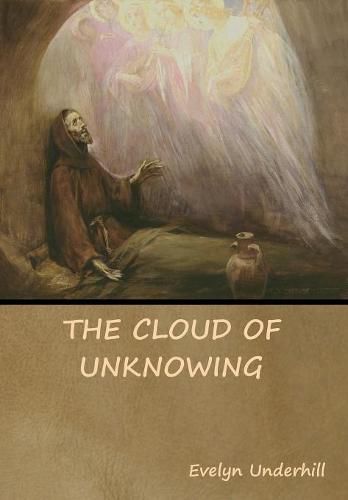Readings Newsletter
Become a Readings Member to make your shopping experience even easier.
Sign in or sign up for free!
You’re not far away from qualifying for FREE standard shipping within Australia
You’ve qualified for FREE standard shipping within Australia
The cart is loading…






This title is printed to order. This book may have been self-published. If so, we cannot guarantee the quality of the content. In the main most books will have gone through the editing process however some may not. We therefore suggest that you be aware of this before ordering this book. If in doubt check either the author or publisher’s details as we are unable to accept any returns unless they are faulty. Please contact us if you have any questions.
Evelyn Underhill (6 December 1875 - 15 June 1941) was an English Anglo-Catholic writer and pacifist known for her numerous works on religion and spiritual practice, in particular Christian mysticism.
In the English-speaking world, she was one of the most widely read writers on such matters in the first half of the 20th century. No other book of its type–until the appearance in 1946 of Aldous Huxley’s The Perennial Philosophy–met with success to match that of her best-known work, Mysticism, published in 1911.
This book is Evelyn Underhill’s translation of the medieval spiritual guidebook called The Cloud of Unknowing, written by an anonymous English monk. At the core is a mystical approach to Christian prayer, in which God is found not through rote knowledge, but through ‘blind love.’ It has been described as Christianity with a Zen outlook. –J.B. Hare
The Cloud of Unknowing (Middle English: The Cloude of Unknowyng) is an anonymous work of Christian mysticism written in Middle English in the latter half of the 14th century. The text is a spiritual guide on contemplative prayer in the late Middle Ages. The underlying message of this work suggests that the way to know God is to abandon consideration of God’s particular activities and attributes, and be courageous enough to surrender one’s mind and ego to the realm of unknowing , at which point one may begin to glimpse the nature of God. (wikipedia.org)
$9.00 standard shipping within Australia
FREE standard shipping within Australia for orders over $100.00
Express & International shipping calculated at checkout
Stock availability can be subject to change without notice. We recommend calling the shop or contacting our online team to check availability of low stock items. Please see our Shopping Online page for more details.
This title is printed to order. This book may have been self-published. If so, we cannot guarantee the quality of the content. In the main most books will have gone through the editing process however some may not. We therefore suggest that you be aware of this before ordering this book. If in doubt check either the author or publisher’s details as we are unable to accept any returns unless they are faulty. Please contact us if you have any questions.
Evelyn Underhill (6 December 1875 - 15 June 1941) was an English Anglo-Catholic writer and pacifist known for her numerous works on religion and spiritual practice, in particular Christian mysticism.
In the English-speaking world, she was one of the most widely read writers on such matters in the first half of the 20th century. No other book of its type–until the appearance in 1946 of Aldous Huxley’s The Perennial Philosophy–met with success to match that of her best-known work, Mysticism, published in 1911.
This book is Evelyn Underhill’s translation of the medieval spiritual guidebook called The Cloud of Unknowing, written by an anonymous English monk. At the core is a mystical approach to Christian prayer, in which God is found not through rote knowledge, but through ‘blind love.’ It has been described as Christianity with a Zen outlook. –J.B. Hare
The Cloud of Unknowing (Middle English: The Cloude of Unknowyng) is an anonymous work of Christian mysticism written in Middle English in the latter half of the 14th century. The text is a spiritual guide on contemplative prayer in the late Middle Ages. The underlying message of this work suggests that the way to know God is to abandon consideration of God’s particular activities and attributes, and be courageous enough to surrender one’s mind and ego to the realm of unknowing , at which point one may begin to glimpse the nature of God. (wikipedia.org)